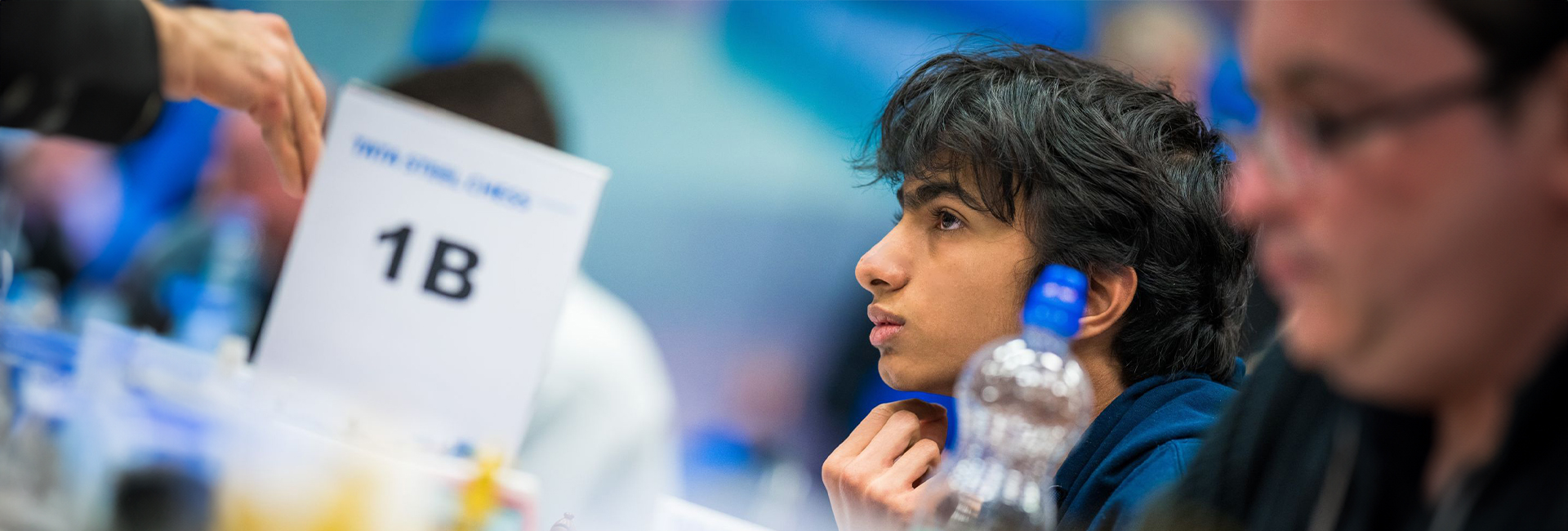(December 27, 2024) At just 15, Sohum Lohia is one of England’s brightest chess players. From first noticing a chessboard as a curious child to becoming a serious competitor on the British chess scene, Sohum’s story highlights his hard work, patience, and love for the game. Alongside him is his mother, Aarti Lohia, who has become a committed supporter of chess and her son’s journey.
How It Began: A Game in Singapore
Sohum remembers the exact moment he first saw a chessboard. “I started playing when we were living in Singapore,” he says. “My dad and my grandfather didn’t really play seriously, but they were having a game. I was fascinated by the different pieces. I think I was about six at the time.”
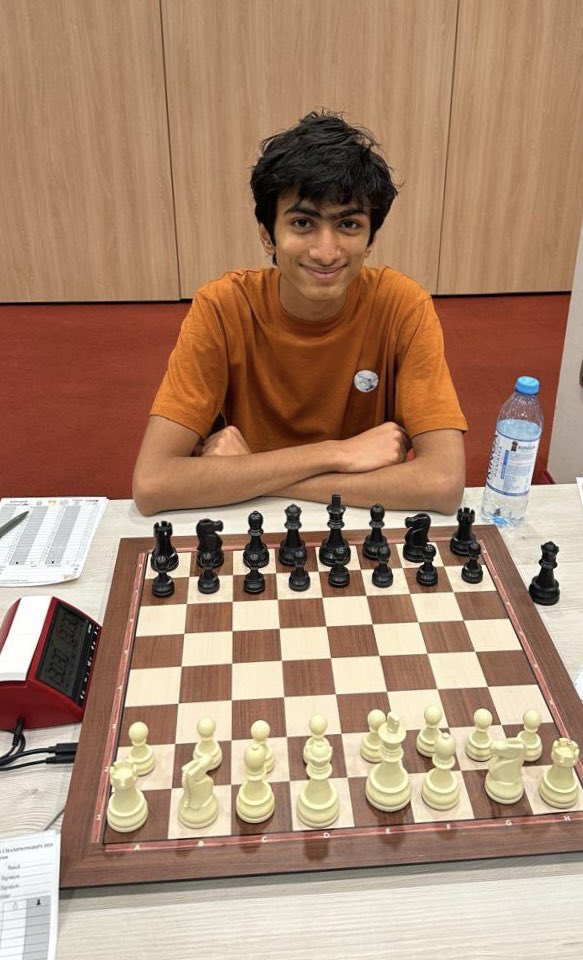
Sohum Lohia
That early fascination grew into something more, even as his family had reservations. Aarti recalls, “We discouraged him from playing, at least at the beginning. It was not cool to play chess when he started. We are a traditional Indian family and they thought it was not a respectable sport.” She adds that they worried it might make him seem odd or isolated.
However, Sohum ignored the doubts and began teaching himself. His family moved to London in 2016, and it was there that he began to focus more seriously on chess.
Achievements So Far
Sohum quickly established himself as a strong player in the UK. His breakthrough came in 2019 when he won both the British Under-11 and Under-12 championships in the same year—something that hadn’t happened since 1996.
In December 2021, Sohum achieved an International Chess Federation (FIDE) ELO rating of 2200, a number that put him among the top junior players globally. As of now, he is only 97 points away from the title of grandmaster, a status held by just around 2,000 active players in the world.
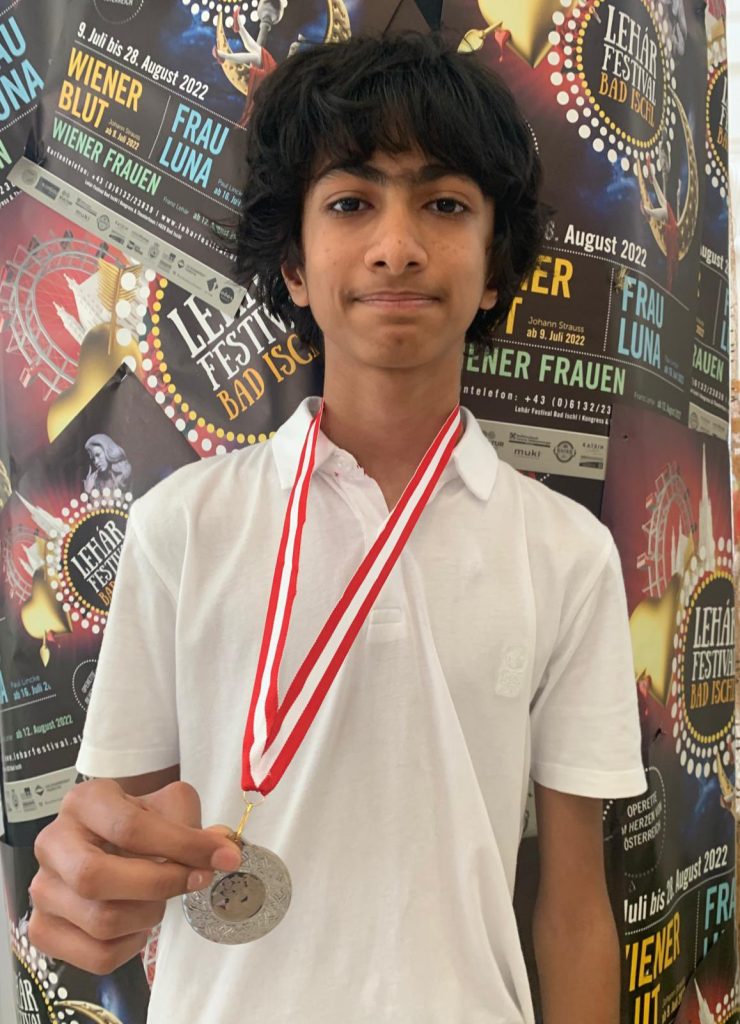

Chess writer Leonard Barden describes Sohum as “one of England’s most promising teenage talents.” He believes Sohum could achieve the grandmaster title by age 18 or 19, and from there, aim for a place on England’s Olympiad team, where the current players are far older.
Training and Support
Sohum’s progress has been guided by experienced coaches. He trains under Luke McShane, a British chess player, and Ramachandran Ramesh, an Indian grandmaster who founded the Chess Gurukul Academy in Chennai. Ramesh has coached some of the best young players in the world, including Praggnanandhaa and Gukesh Dommaraju.
Ramesh explains, “The world of chess is undergoing a few drastic changes… What is making this more exciting is the fact that it is the young teenagers who are taking the lead role in this transition.” He adds, “Players like Gukesh Dommaraju, Praggnanandhaa, and Sohum Lohia are instrumental in bringing new dynamics into play.”
Aarti, meanwhile, has taken on the role of a full-time “chess mum.” She travels with Sohum to tournaments, advocates for better funding for chess, and campaigns to raise awareness. Her involvement has been crucial to Sohum’s success. “I think everybody knows you can’t play at a certain level of sport if one parent is not crazy. And in this family, that parent is me,” she says.
The Mindset of a Chess Player
Chess is a game that rewards focus, patience, and planning—skills Sohum has worked hard to develop. He says, “You’re always waiting a long time for the other player to make their move. You also learn to get a bit less emotional, so you don’t feel so bad if something goes wrong.”
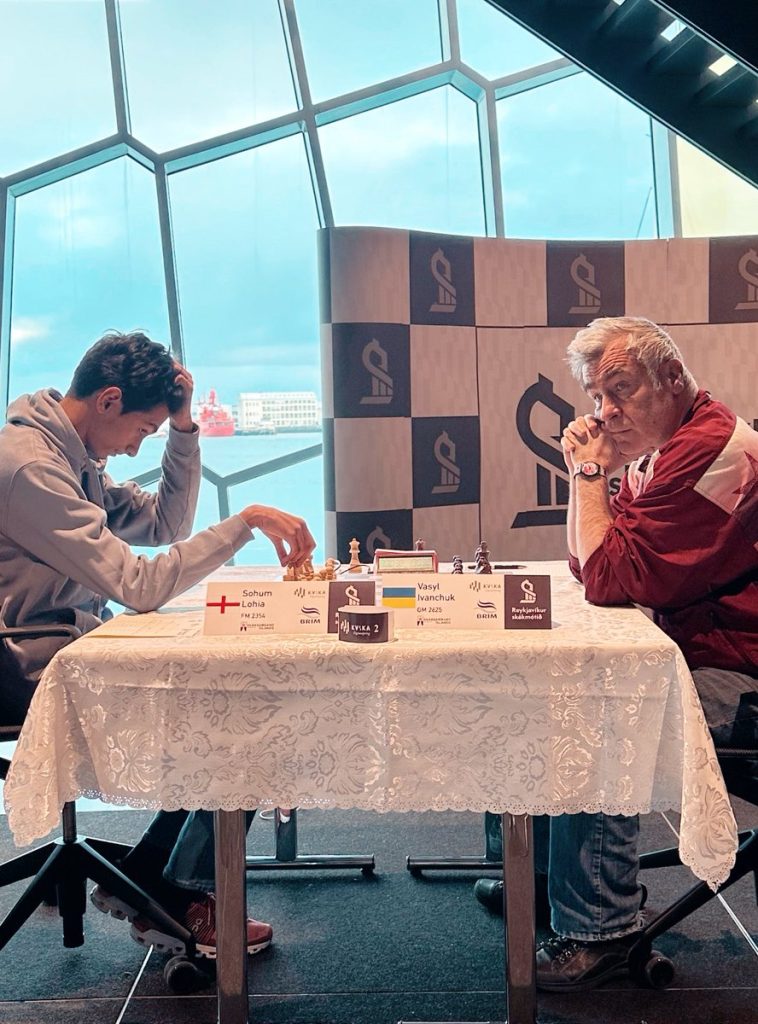

Sohum also appreciates how age doesn’t matter in chess. He often competes against adults and says, “Age doesn’t matter. You play against everyone.”
However, he pushes back against the stereotype that all chess players are math geniuses. “Honestly, I think chess and maths are quite separate. I’m decent at maths, and so are other players, but they’re not very connected I don’t think,” the Global Indian explains.
Challenges and Competition
Sohum is part of a new generation of chess players competing at a very high level. One of his closest rivals is Shreyas Royal, who at 15 is already England’s youngest grandmaster. “Royal is at present on a higher trajectory than Sohum,” says Barden, “but that is not set in stone.”
While the competition is fierce, Sohum remains focused on his love for the game. “I’m just playing for fun, but I do want to be a grandmaster,” he says.
The Bigger Picture: Chess as a Movement
For Aarti, chess is more than just a sport—it’s a tool for life. She believes it teaches players to think carefully about consequences. “When you make a move, something’s going to happen. So you better think before you do,” she says.
Her passion has inspired her to work on a documentary about a charity that brings chess into prisons. “When prisoners learn chess, they internalise this understanding. Yes, they may have made careless moves, they’ve done silly things. And they see the chess game as a life imitated on the board,” she explains.
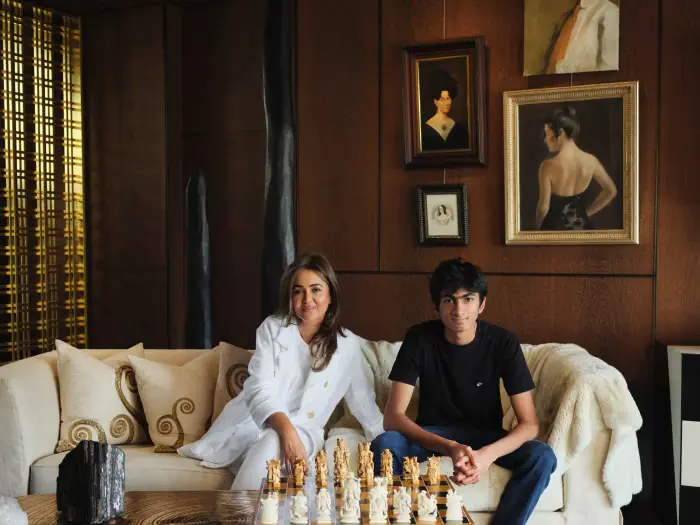

Sohum Lohia with his mom Aarti
The Road Ahead
For Sohum, the goal is clear: he wants to become a grandmaster. He is not weighed down by pressure but enjoys the game for what it is. While he plays calmly, his mother admits that she sometimes gets more stressed than he does. “It can be quite a cauldron of emotions,” she says of tournaments.
With his family’s support, expert coaching, and a steady mindset, Sohum is well on his way to achieving his ambitions. His story shows how hard work, focus, and the right support system can lead to success—one move at a time.

